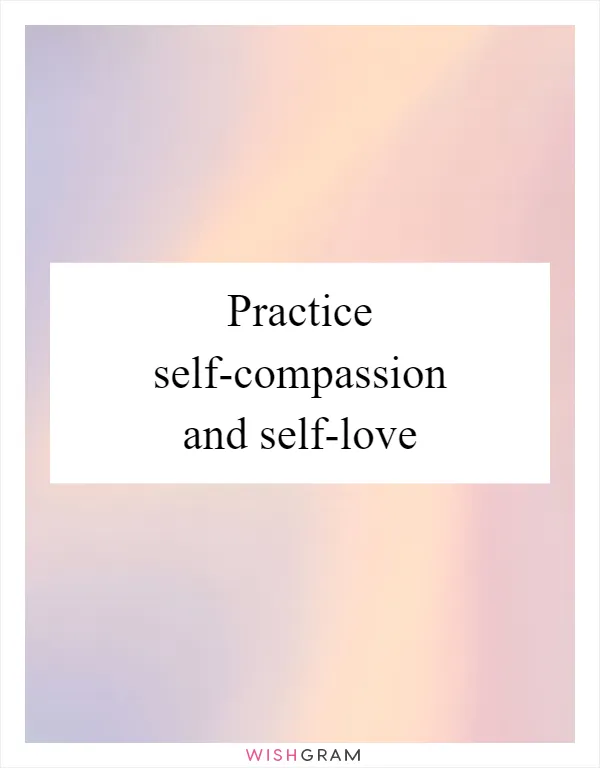Practice self-compassion and self-love
Self-improvement is a journey that requires dedication, perseverance, and most importantly, self-compassion and self-love. In a world that often emphasizes external achievements and comparisons, it is crucial to prioritize our own well-being and nurture a positive relationship with ourselves.
Practicing self-compassion means treating ourselves with kindness, understanding, and forgiveness. It involves acknowledging our flaws and mistakes without judgment or self-criticism. Instead of dwelling on our shortcomings, we can choose to focus on our strengths and the progress we have made. By cultivating self-compassion, we create a safe space within ourselves where we can grow and learn without fear of failure or rejection.
Self-love goes hand in hand with self-compassion. It means recognizing our inherent worth and embracing ourselves unconditionally. When we love ourselves, we prioritize our needs, set healthy boundaries, and make choices that align with our values and aspirations. Self-love is not about being selfish or narcissistic; it is about nurturing our mental, emotional, and physical well-being so that we can show up as our best selves in all aspects of life.
Practicing self-compassion and self-love is essential for self-improvement because it allows us to cultivate a positive mindset and develop resilience. When we approach our goals and challenges with self-compassion, we are more likely to bounce back from setbacks and view them as opportunities for growth. Instead of berating ourselves for not meeting our expectations, we can offer ourselves encouragement and support, fostering a sense of motivation and determination.
Moreover, self-compassion and self-love enable us to cultivate a healthy relationship with failure. In the pursuit of self-improvement, we are bound to encounter obstacles and experience setbacks. However, by embracing self-compassion, we can view these setbacks as valuable learning experiences rather than personal shortcomings. We can acknowledge that making mistakes is a natural part of the learning process and that they do not define our worth or potential.
In addition to fostering resilience, self-compassion and self-love also contribute to our overall well-being. When we prioritize self-care and self-compassion, we are more likely to engage in activities that nourish our mind, body, and soul. This may include practicing mindfulness, engaging in hobbies we enjoy, seeking support from loved ones, or taking time for rest and relaxation. By prioritizing our well-being, we enhance our ability to handle stress, maintain healthy relationships, and achieve our goals.
It is important to remember that practicing self-compassion and self-love is a continuous process. It requires patience, self-reflection, and a commitment to nurturing ourselves. It may involve challenging negative self-talk, letting go of perfectionism, and embracing self-acceptance. However, the rewards of self-compassion and self-love are immeasurable. They empower us to live authentically, pursue our passions, and cultivate a deep sense of fulfillment and happiness.
